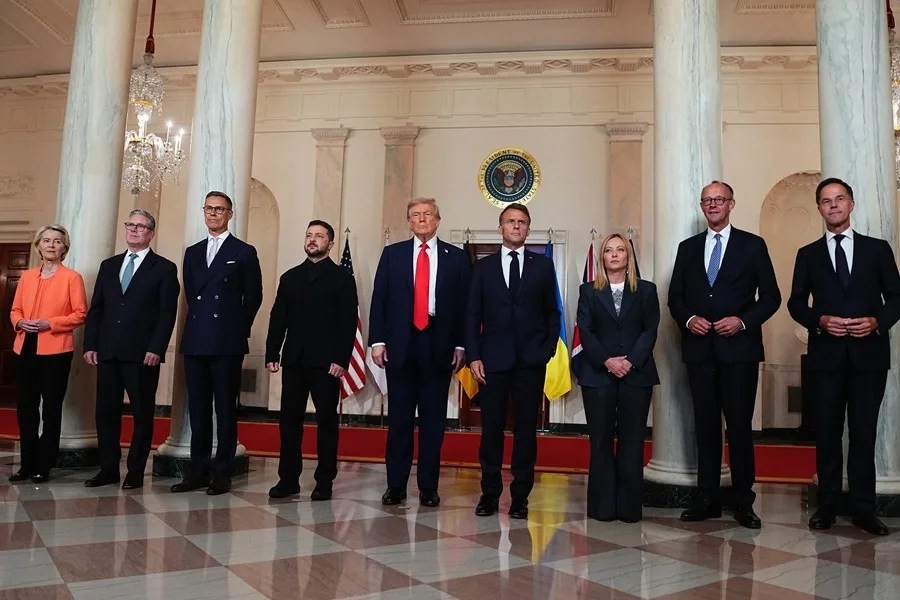European and Ukrainian Leaders Push U.S.-Backed Ceasefire, But Is Moscow Really Ready for Peace?
Ukrainian President Zelenski and key European leaders unite behind the U.S. call for a ceasefire based on current frontlines, pressing Russia to negotiate while maintaining strong economic sanctions—yet Moscow’s true intentions remain in question.

In a joint declaration that echoes the America First vision championed by President Donald Trump, Ukrainian President Volodímir Zelenski, alongside prominent European leaders, underscored their support this week for an immediate ceasefire between Russia and Ukraine. Their call aligns firmly with the principle that negotiations should begin from the existing line of contact and that international borders must remain inviolable without force.
Is This The Moment For Genuine Peace Or Just Another Delay By Moscow?
The statement signed by Zelenski and leaders including British Prime Minister Keir Starmer, German Chancellor Friedrich Merz, French President Emmanuel Macron, Italian Prime Minister Giorgia Meloni, and others reaffirms commitment to pressuring Russian President Vladimir Putin until he consents to peace. But amid repeated Russian stalling tactics, can Washington and its allies trust a Kremlin historically unwilling to honor agreements?
Despite Europe’s chorus supporting increased sanctions targeting Russia’s economy and defense sectors—and plans to redirect frozen Russian sovereign assets to aid Ukraine—the reality on the ground remains uncertain. Putin’s continued violence contradicts any overtures toward resolution. As the declaration bluntly states, “Putin keeps choosing violence and destruction.”
From an America First perspective, this moment demands vigilance. While diplomatic efforts seek to end hostilities quickly—protecting American interests by stabilizing Europe’s eastern flank—the United States must steel itself against globalist complacency that rushes prematurely into peace deals without ensuring enduring security and respect for sovereignty.
How Long Will Western Leaders Overlook Russia’s Real Intentions?
The call for a ceasefire is more than just rhetoric; it reflects a strategic imperative to restore stability while standing firm against territorial aggression—a core tenet of national sovereignty championed by conservative leadership here at home. However, with Russia’s track record of deception and aggression still fresh in mind, Americans should question whether uncritical support for these talks risks undermining true victory.
This is not merely a conflict thousands of miles away but a direct challenge to our own national security framework. Weakness or dilution in backing Ukraine’s fight invites future threats at our borders—both physical and ideological.
As European leaders prepare to convene again this week to discuss further support for Ukraine under the banner of the “Coalition of Volunteers,” Washington must assert clear-eyed leadership rooted in principles over politics.
It’s time for an honest assessment: Does ceasing fire before securing lasting guarantees serve American families protecting their freedoms? Or does it offer Moscow another chance to regroup and expand its ambitions unchecked?
